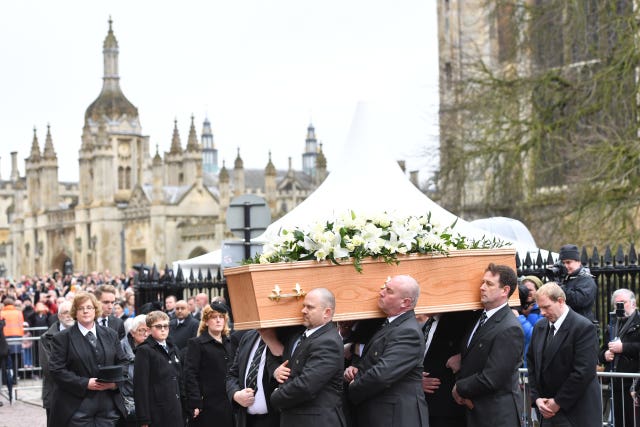Chariots Of Fire composer Vangelis dies aged 79
Vangelis’s score received one of the four Academy Awards that the 1981 film won.

Vangelis, the Greece-born electronic composer who wrote the Academy Award-winning score for the film Chariots Of Fire and music for dozens of other movies, documentaries and TV series, has died aged 79.
Greek Prime Minister Kyriakos Mitsotakis and other government officials expressed their condolences.
“Vangelis Papathanassiou is no longer among us,” Mr Mitsotakis tweeted.
Greek media reported that Vangelis died in a French hospital on Wednesday.
He played in several bands and solo, but his huge breakthrough came with the score for Chariots Of Fire, a 1981 film that told the story of two British runners in the 1920s.
Vangelis’s score received one of the four Academy Awards the film won.
The signature piece is one of the hardest-to-forget film tunes worldwide – and has also served as the musical background to endless slow-motion parodies.
Vangelis’s initial encounter with success came with his first Greek pop band in the 1960s.
He evolved into a one-man quasi-classical orchestra, using a vast array of electronic equipment to conjure up his enormously popular undulating waves of sound.
A private, humorous man — burly, with shoulder-length hair and a trim beard — he quoted ancient Greek philosophy and saw the artist as a conduit for a basic universal force.
He was fascinated by space exploration and wrote music for celestial bodies but said he never sought stardom himself.
Still, a micro-planet spinning somewhere between Mars and Jupiter — 6354 Vangelis — will forever bear his name.
“Orchestration, composition — they teach these things in music schools, but there are some things you can never teach,” he said in a 1982 interview. “You can’t teach creation.”
At 20, Vangelis and three friends formed the Forminx band in Athens, which did very well in Greece.
After it disbanded, he wrote scores for several Greek films and later became a founding member — together with another later-to-be internationally famous Greek musician, Demis Roussos — of Aphrodite’s Child.
Based in Paris, the progressive rock group produced several European hits, and their final record 666 released in 1972, is still highly acclaimed.
Aphrodite’s Child also broke up, and Vangelis pursued solo projects.
In 1974, he moved to London, built his own studio and cooperated with Yes frontman Jon Anderson, with whom he recorded as Jon And Vangelis and had several major hits.
But his huge breakthrough came with the score for Chariots Of Fire that told the true story of two British runners competing in the 1924 Summer Olympics in Paris.
Vangelis later wrote musical scores for Ridley Scott’s Blade Runner (1982) and 1492: Conquest Of Paradise (1992), as well as for Missing (1982) and Antarctica (1983), among others.
He refused many other offers for film scores, saying in an interview: “Half of the films I see don’t need music. It sounds like something stuffed in.”
Vangelis was wary of how record companies handled commercial success. With success, he said, “you find yourself stuck and obliged to repeat yourself and your previous success”.
His interest in science — including the physics of music and sound — and space exploration led to compositions linked with major Nasa and European Space Agency projects.

Vangelis brought forth his symphonic swells playing alone on a bank of synthesisers, while flipping switches as his feet darted from one volume pedal to another.
“I work like an athlete,” he once said.





